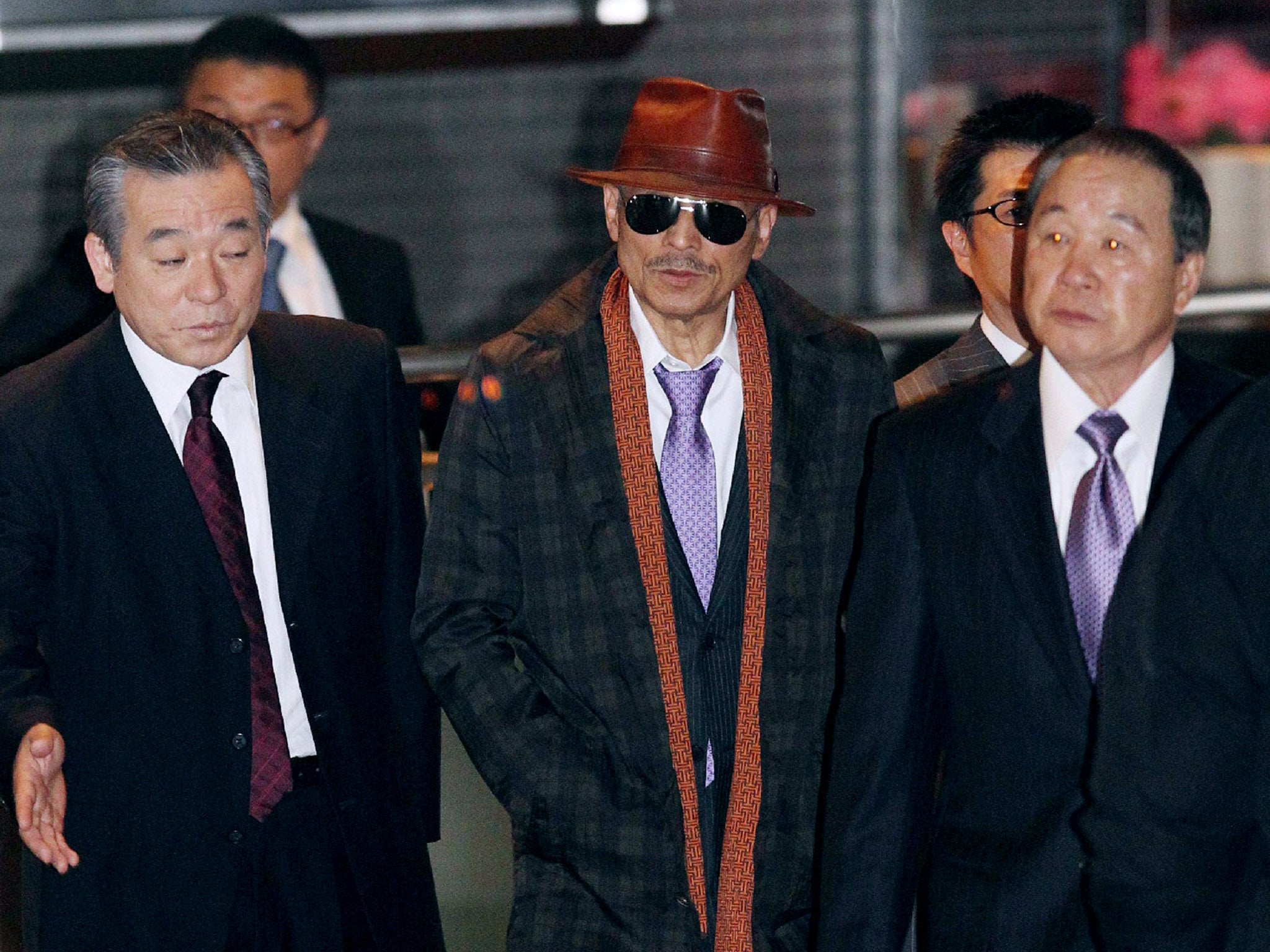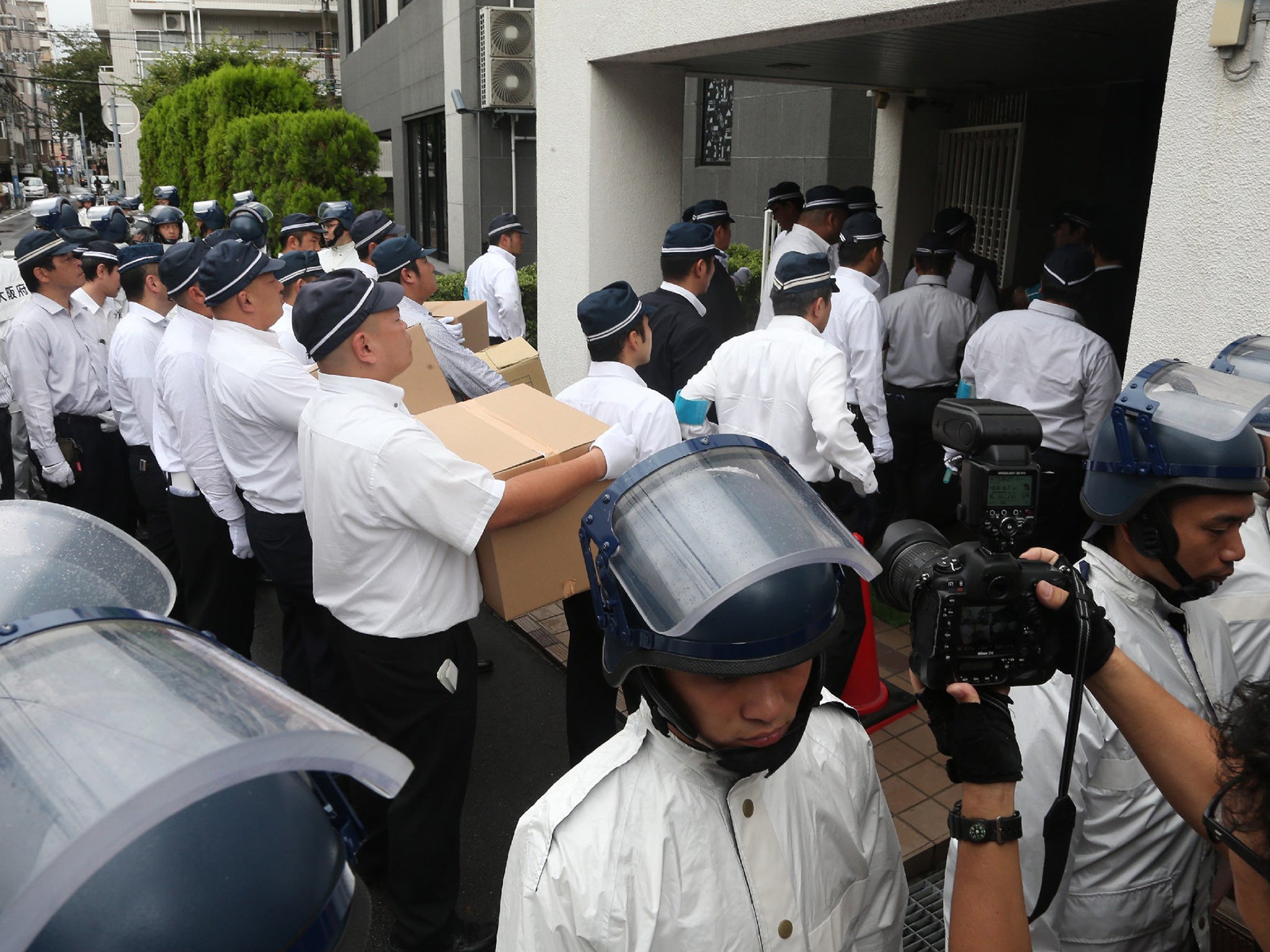Tokyo braces for gang war after biggest yakuza syndicate splinters
Internal tensions and a stagnant economy set stage for Yamaguchi-gumi battle over turf

Your support helps us to tell the story
From reproductive rights to climate change to Big Tech, The Independent is on the ground when the story is developing. Whether it's investigating the financials of Elon Musk's pro-Trump PAC or producing our latest documentary, 'The A Word', which shines a light on the American women fighting for reproductive rights, we know how important it is to parse out the facts from the messaging.
At such a critical moment in US history, we need reporters on the ground. Your donation allows us to keep sending journalists to speak to both sides of the story.
The Independent is trusted by Americans across the entire political spectrum. And unlike many other quality news outlets, we choose not to lock Americans out of our reporting and analysis with paywalls. We believe quality journalism should be available to everyone, paid for by those who can afford it.
Your support makes all the difference.Finding a mob hangout in Tokyo requires little more than a telephone book. The city’s richest crime group has an office tucked off the back streets of the Ginza shopping district. A brass nameplate on the door helpfully identifies the Sumiyoshi-kai, but the men inside are reluctant to discuss a potentially deadly split in the yakuza ranks. “Nothing to do with us,” growls a sumo-sized mobster at the door. “Now go away.”
The splintering of the Yamaguchi-gumi, Japan’s largest crime syndicate, has put police and gangsters across the country on high alert. A dozen of the syndicate’s affiliates, reportedly comprising about 2,000 of its 23,400 members, have gelled into a new, rival outfit known as the Kobe Yamaguchi. There are worrying precedents for such a breakaway: in 1985, more than two dozen people died in bloody clashes between rival gangs. In the last outbreak of mob warfare in southern Japan a few years ago, gangsters went at each other with grenades and machines guns.
The split is bad news for Kenichi Shinoda, the fedora-wearing boss of the Yamaguchi-gumi. Shinoda (also known as Shinobu Tsukasa) prefers to make headlines by trying to soften the image of the mob. Last year he produced an in-house tabloid with features on fishing, board games and his own morale-boosting message.
Money and territory are driving the latest dispute, Yakuza watchers say. Profits have been squeezed, particularly in the Yamaguchi-gumi’s home turf in the giant Kansai region west of Tokyo, by Japan’s faltering economy. The breakaway mobsters are unhappy that membership fees, reportedly 12 million yen (£65,000) a month for top-tier bosses, have not been lowered accordingly.
AFP.jpg)
Shinoda has fuelled resentment by favouring his own faction, the Kodo-kai, which is trying to expand into the rich capital. Kansai yakuza feel they’re being neglected, says Hiroki Allen, a security and finance consultant. “The battleground is going to be Tokyo if there is a battle,” he says. “The Sumiyoshi- kai is still the most powerful group there. They’re smaller but still seem to have more money.”
Unlike their counterparts elsewhere, Japan’s mobsters hide in plain sight. Their organisations are legal and members carry business cards and register with the police. Some even have pension plans.
However, the authorities have recently discovered a new zeal for bringing the mob to heel. Yakuza-exclusion ordinances, introduced three years ago, stop companies from knowingly engaging with gangsters. Businesses from megabanks to corner shops are now obliged to confirm that customers are not related to organised crime. Money laundering has also been made illegal, forcing banks to carefully vet potential clients for mob ties. Known gangsters cannot open a bank account. Banks now run nationwide databases listing the names of several thousand yakuza. But there is no official appetite for a complete shutdown of mob activities, which would just drive them deeper underground, says Robert Whiting, author of the seminal Tokyo Underground.

Muscle work, such as money collection and beatings has been farmed out to subcontractors. Meanwhile, a tougher core of gangsters has migrated from traditional mob cash cows of loan-sharking, drugs and protection rackets into financial crimes. The yakuza are also known to be eyeing the rich pickings from construction and entertainment ahead of the 2020 Tokyo Olympics.
Tokyo got a taste of possible trouble to come last year when a 10-strong gang wearing ski masks beat a man to death with baseball bats in front of other guests at a club in the city’s Roppongi entertainment district. According to Allen, the beating was ordered by the Sumiyoshi-kai and outsourced to motorcycle gangs. Because the police could not figure out who landed the fatal blow, nobody could be charged with murder.
Such bloody vendettas bring unwelcome attention so the yakuza try to avoid them. But the authorities fear the latest split is so serious it may not be in the power of gang leaders to keep a lid on violence. Police numbers have been beefed up in known yakuza haunts, such as Kabukicho, Tokyo’s largest red-like district. Yakuza gangsters run much of the trade here. For years, they have met to do business in the Parisienne Café, a local landmark.
“Kabukicho is a small place so any trouble here would be felt by all of us,” says the night manager in the Parisienne.
Join our commenting forum
Join thought-provoking conversations, follow other Independent readers and see their replies
Comments